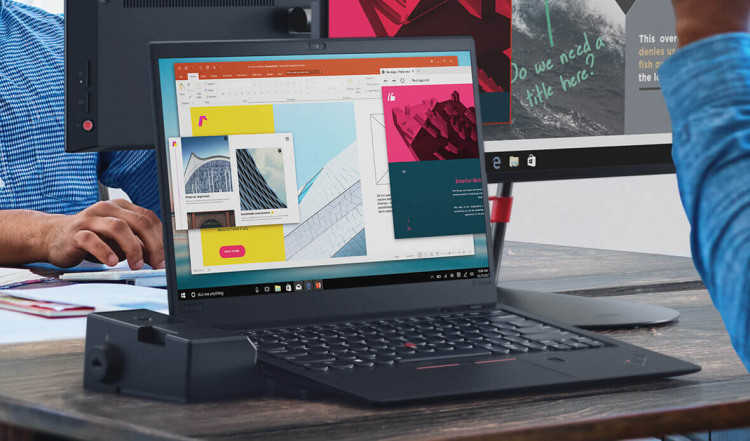Lenovo kicked off the year right, revealing a couple of ultraportable laptops at the CES 2019 in Las Vegas. These were the Lenovo ThinkPad X1 Carbon and the Lenovo ThinkPad X1 Yoga, new versions appending their 2018 editions.
CNet caught a glimpse of the latest models, each coming with some minor tweaks on the outside as well as some improvements internally. The Lenovo ThinkPad X1 Yoga now sports a slimmer make, accounting for a lighter piece sporting a CNC aluminum chassis, slimmer bezels and something that now runs on Intel's eight-gen chipset.
The fourth-gen ThinkPad X1 Yoga sports a 14-inch full HD IPS touchscreen running on an 8th generation Intel core chipset that will be backed by a memory of up to 16 GB LPDDR3. Storage capacity is up to 2 TB PCIe SSD and will carry security features such as Touch FPR, an IR camera, dTPM2.0 and bank on a 51 Wh battery to keep it juiced up when not plugged in. The device will run on a Windows 10 Pro operating system with prices starting at $1,930. This laptop variant is expected to hit shelves by June 2019.
Joining it will be the seventh-generation Lenovo ThinkPad X1 Carbon. As the model connotes, this laptop comes in a carbon fiber finish and mold that is thinner and lighter than its predecessor. It weighs only 2.5 pounds.
Compared to the X1 Yoga, the X1 Carbon offers better display features such as a 500-nit, 10-bit, 4K Dolby Vision HDR panel. It offers practically the same specs as the ThinkPad X1 Yoga although it does cost less with the suggested retail price pegged at $1,710. It will also be available starting June 2019.
With new designs and laptops that are easier to carry around, these are two mobile solutions that should appeal to customers. The changes may not be dramatic but its functionality is what matters - especially for professionals who need the latest specs to make sure that their programs run smoothly.
Lenovo's ThinkPads are one of the best mobile computing solutions out in the market. Subtle tweaks may fail to convince most to get the new ones though that entirely depends on the end consumer. Some may be looking for an upgrade and others for a new one to use from here on.
According to Lenovo, the decision to take a major step backward in laptop design was due to consumer demand. Consumers liked the Yoga Thinkpad X1, but they didn’t like its carbon fiber body and kept asking for aluminum. Lenovo, a company that likes to make money and is the number one seller of business laptops, is naturally going to meet demand, Gizmodo said.






